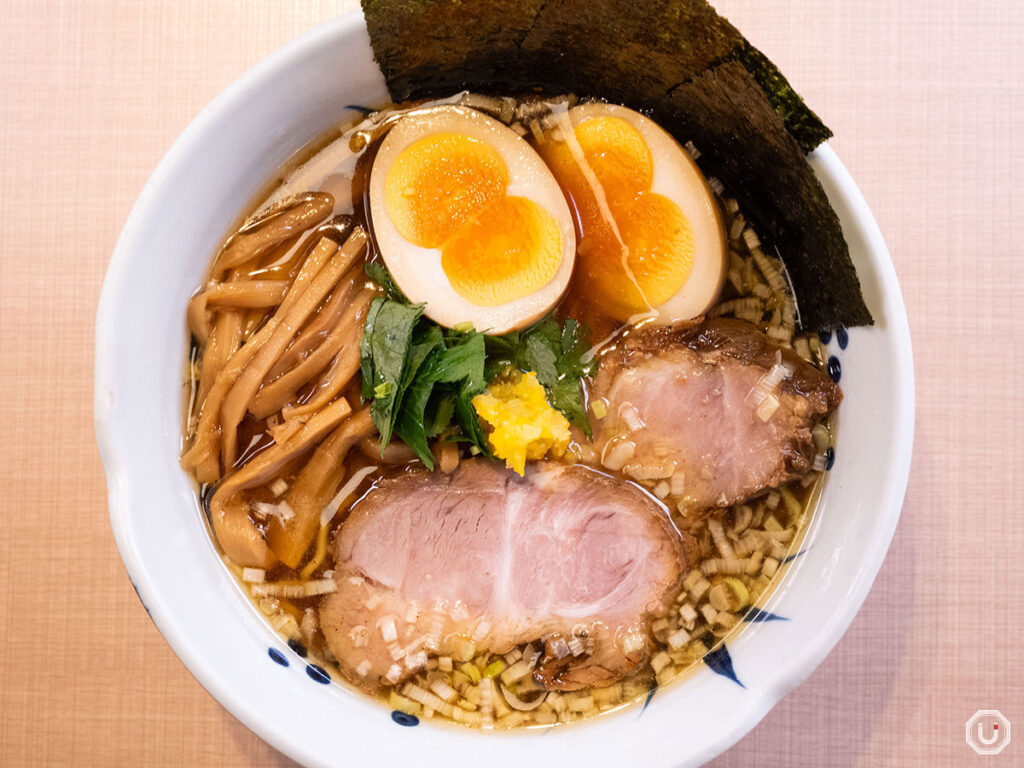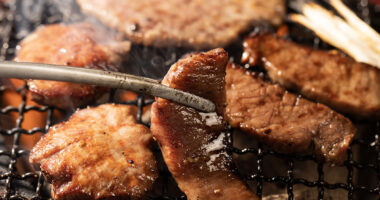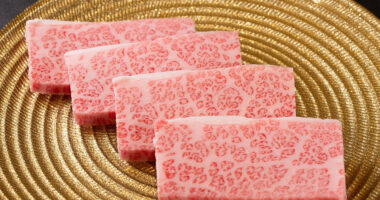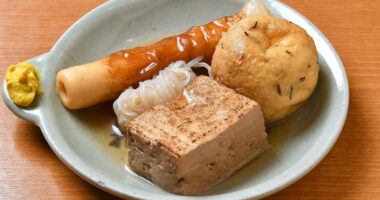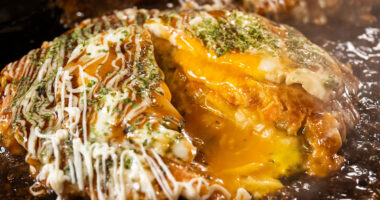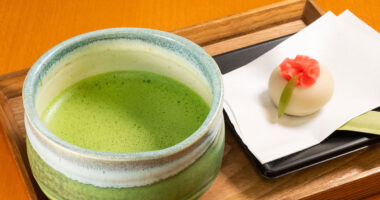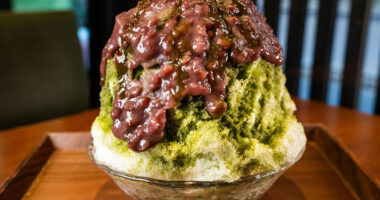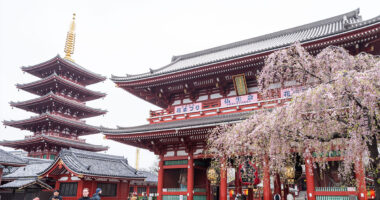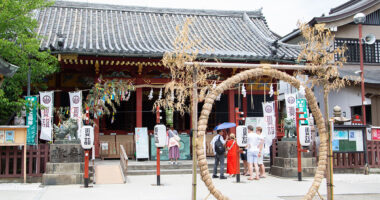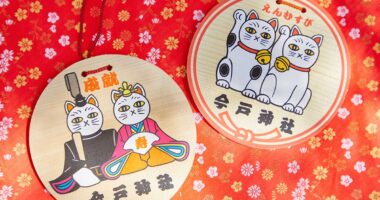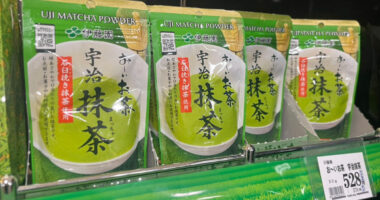On Asakusa’s Denboin Street (also called Denboin-dori), which is constantly bustling with tourists, there’s a ramen shop that attracts long lines daily. That shop’s name is “Asakusa Nadai Ramen Yoroiya” (hereafter referred to as “Yoroiya”).
The lines outside include not just Japanese locals but also many international diners, making it one of Asakusa’s most popular restaurants, attracting people from all over the world.
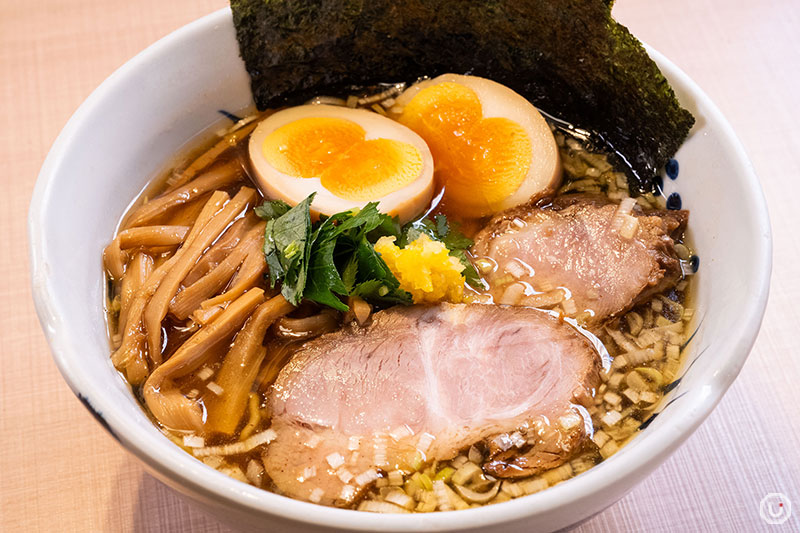
“特製らーめん(醤油),” Deluxe Ramen (Shoyu) 1,300 JPY (tax included)
Ingredients carefully handpicked by the owner
At Yoroiya, the soup is particularly outstanding. Its rich, deep flavor is created from a base of domestic chicken and pork knee joints (genkotsu), combined with bonito flakes, kombu, and dried sardines.
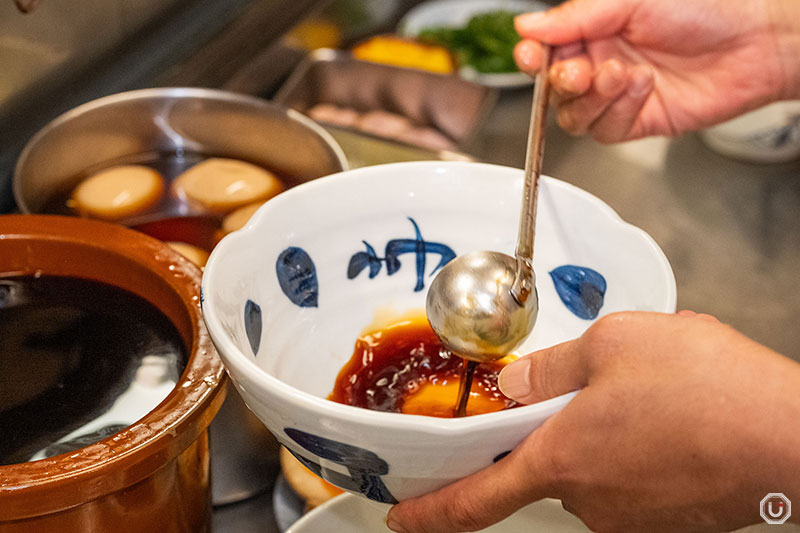
The soy sauce tare (sauce often featured as a base in ramen) used in the soup has a robust flavor that holds its own against the strong, savory dashi. While the aftertaste is light, the lingering richness that spreads across your palate leaves a memorable finish.
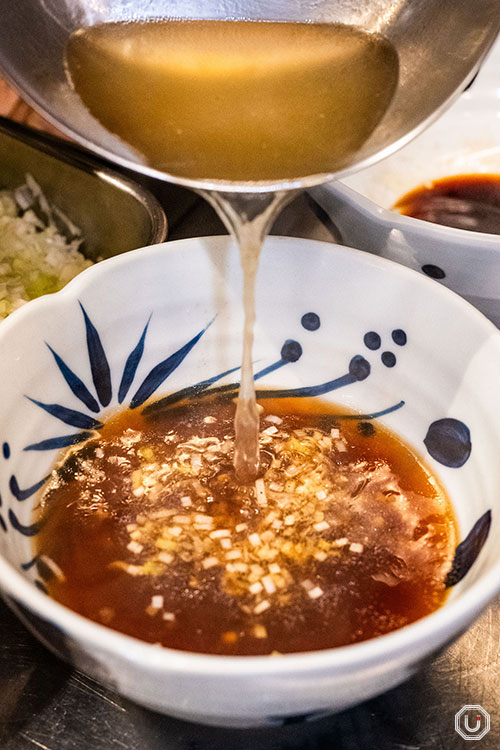
The noodles used in Yoroiya’s ramen are custom-made, springy, and slightly curly, with a fragrant wheat aroma. Not only does the wheat flavor stand out, but the noodles also have an irresistible firm and chewy texture. They go down smoothly, encouraging you to keep eating.
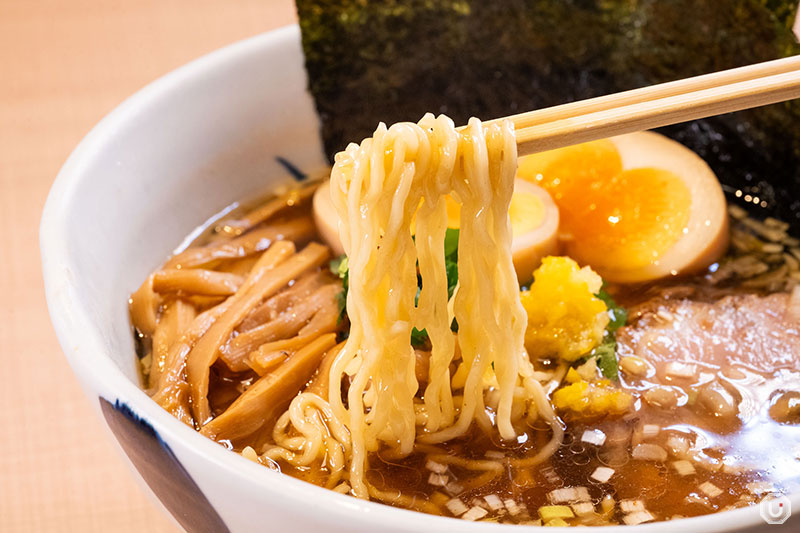
The toppings are just as deliciously prepared, all finished to high quality. The thick pork chāshū (Japan’s version of char siu), marinated in the shop’s secret sauce, is so tender that it easily falls apart with chopsticks.
The menma (bamboo shoots), fragrant with sesame oil, are prepared by splitting each piece before marinating, allowing the flavor to permeate deeply.
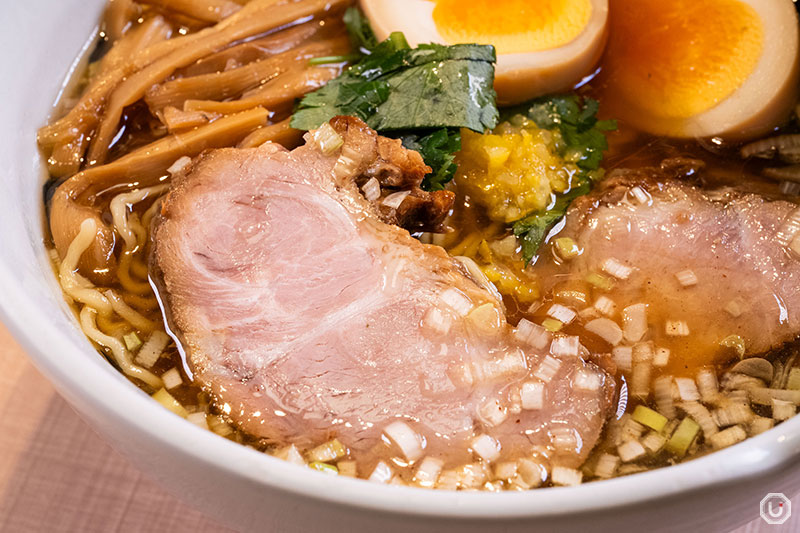
Pork chashu
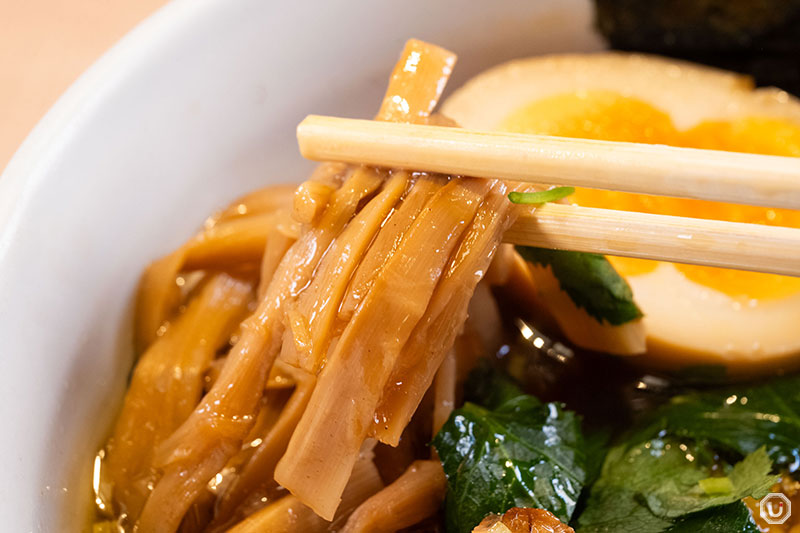
Menma bamboo shoots
Two of these toppings that define Yoroiya are the futago tamago (twin-yolk eggs) and yuzu citrus.
First, the rare two-yolk egg, marinated overnight in soy-based tare, has a natural sweetness. The egg symbolizes the happiness of visitors and their close connection to Yoroiya.
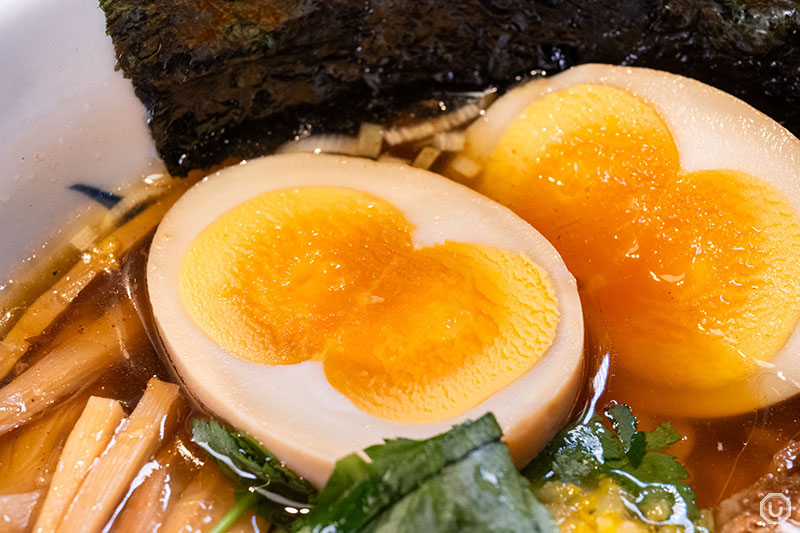
Twin-yolked eggs
The yuzu is so important that the shop says it’s “indispensable for Yoroiya’s ramen.” Above all, its fragrance is outstanding. The yuzu also has an incredibly refreshing aftertaste, making you want to take spoonful after spoonful.
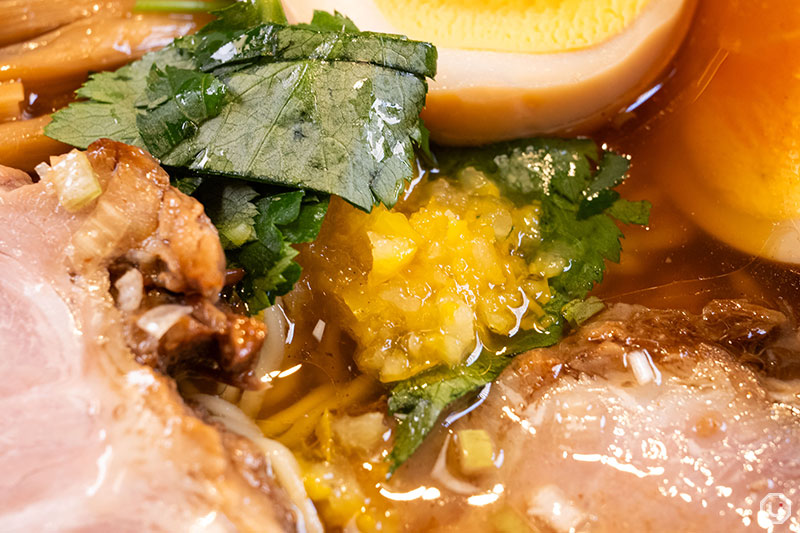
Yuzu citrus
Must-try handmade gyoza
In addition to ramen, Yoroiya’s handmade “Gyoza ~chicken dumplings~” is a must-order dish.
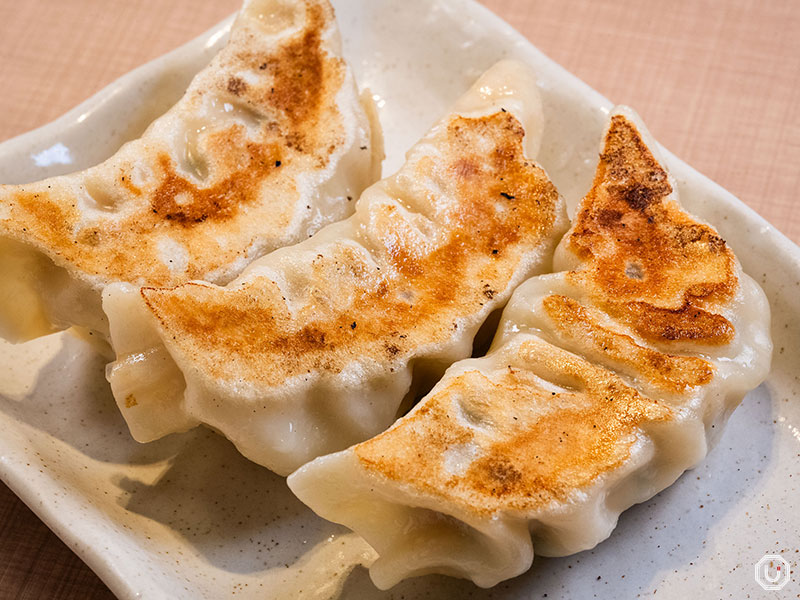
“和風餃子(大3個),” Gyoza ~chicken dumplings~ 400 JPY (tax included)
The gyoza, generously packed with so much filling they seem about to burst out of the skin, are large and hearty. They’re so popular that half the customers order them, so huge batches are prepared every morning.
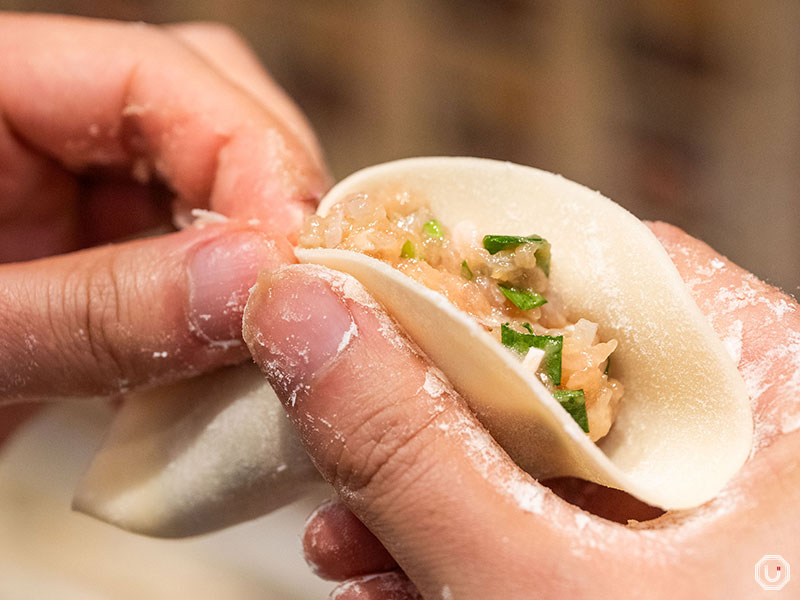
A standout feature of their gyoza that draws so many people in is the use of vermicelli noodles. These add a springy texture accent to the filling, which is mainly made of chicken thigh meat.
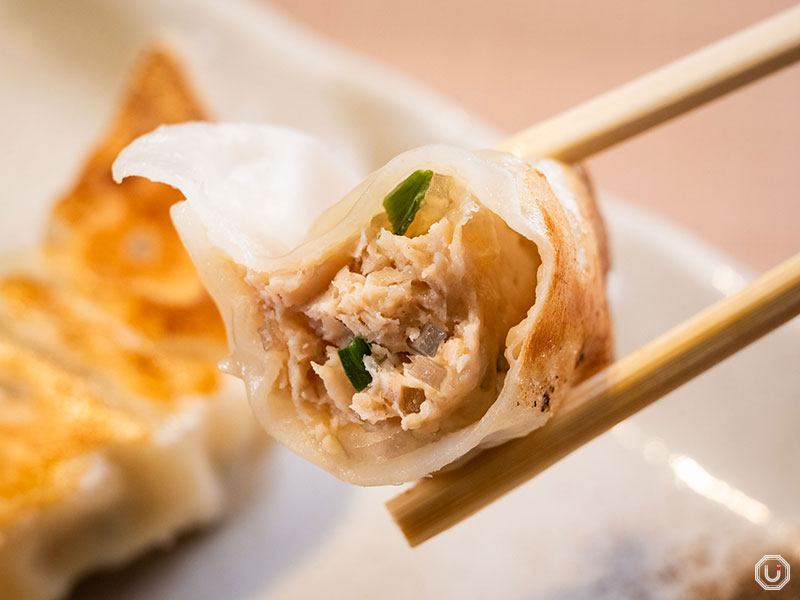
The filling is seasoned with soy sauce, ginger, and sesame oil, with miso added as a secret ingredient. Without using garlic, these gyoza bring out the umami of the ingredients and are full of meaty juices
They pair perfectly with beer!
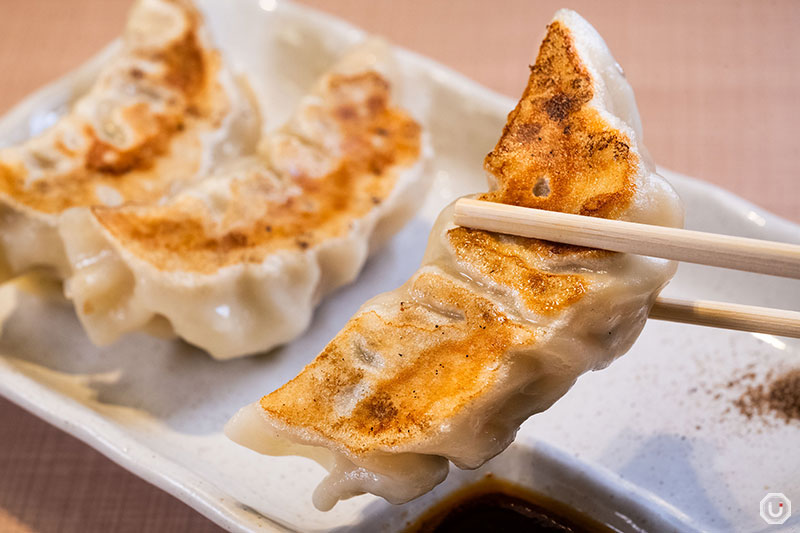
The gyoza come with a special sauce blending soy sauce, vinegar, sweet bean sauce, and chili bean paste, but the shop recommends eating them with “Sanshō Salt.” This blend of roasted salt and sanshō (Japanese pepper) has a mild saltiness and the subtle numbing sensation characteristic of sansho pepper.
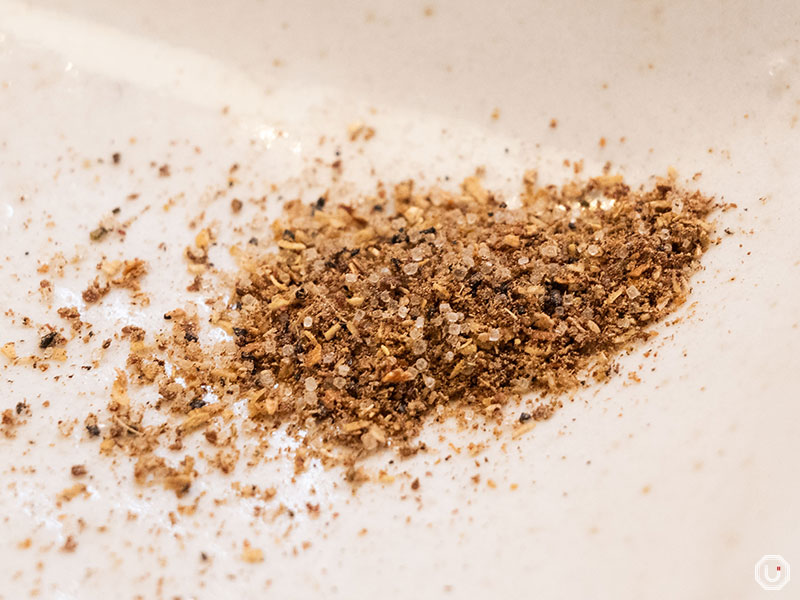
Sansho Salt
The “Vegan Ramen” is a big hit with international diners
While Yoroiya has an established fanbase, they don’t rest on their laurels as a popular shop but continue to take on new challenges. One of these is their “Vegan Ramen,” which uses no animal products.
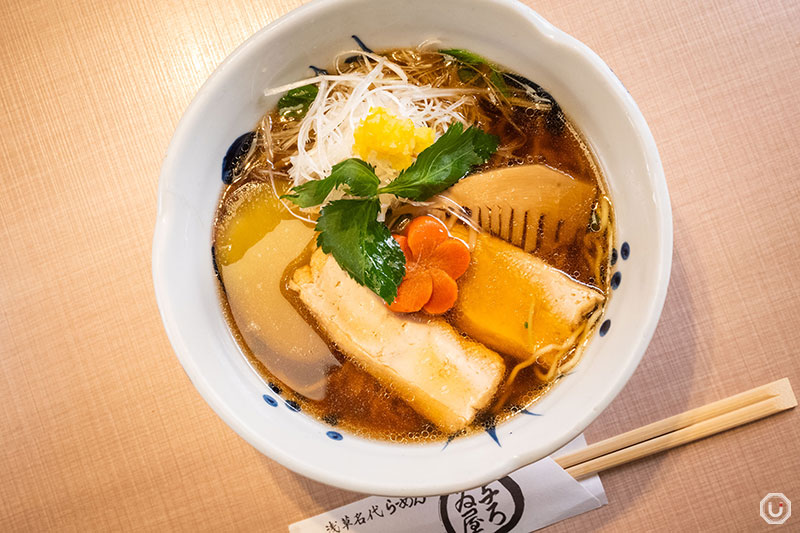
“ヴィーガンらーめん,” Vegan Ramen 1,250 JPY (tax included)
The soup uses a vegetable-based broth, enhanced with umami from kombu (kelp). The tare uses soy sauce without any seafood-derived dashi.
The resulting Vegan Ramen soup has a clear taste with a distinct sweetness from the vegetables. You can’t help but admire its profound taste!
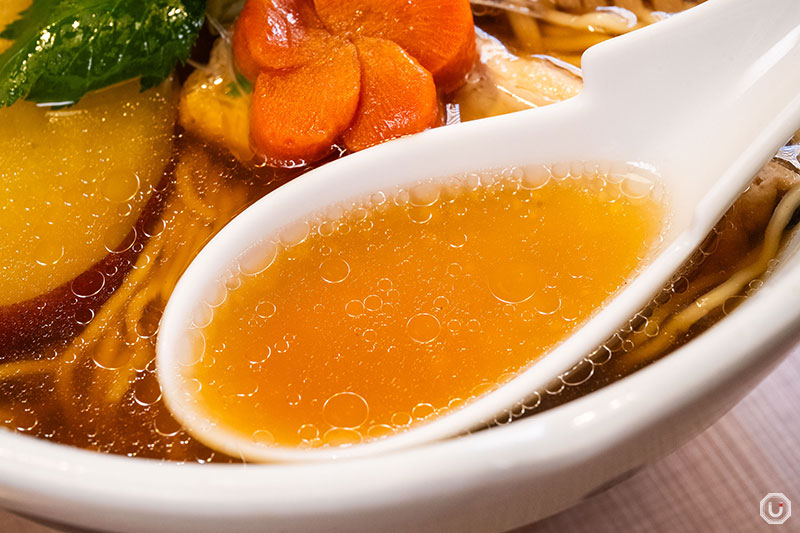
The toppings include thick fried tofu, bamboo shoots, carrots, and sweet potatoes. The Vegan Ramen is also topped with yuzu, adding a refreshing flavor to the soup’s sweetness.
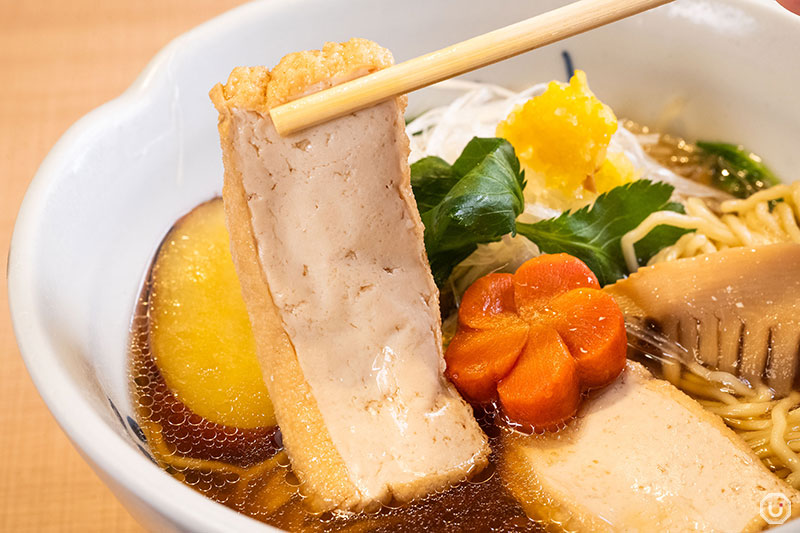
Thick fried tofu
Yoroiya plans to offer vegan gyoza in the future. Their flexible attitude in adapting to changing times while preserving traditional flavors is another reason for their popularity.
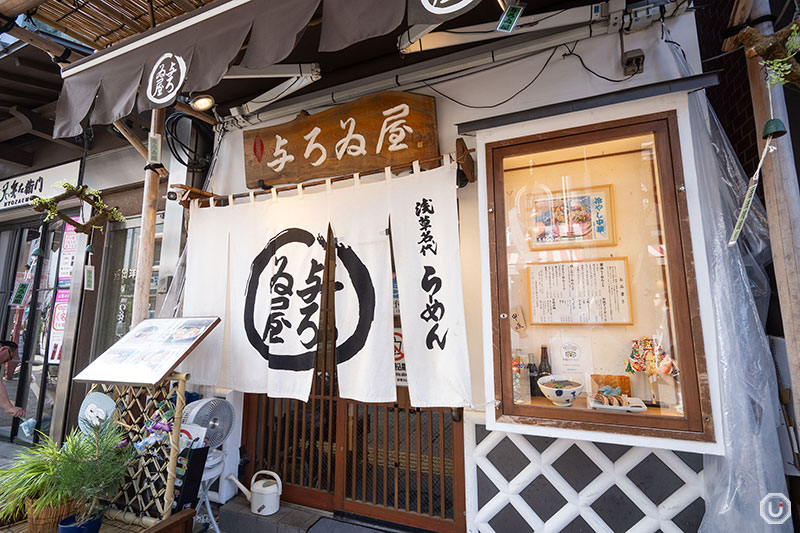
Yoroiya’s exterior
Yoroiya has so many dishes worth lining up for
Yoroiya first opened its doors in 1992. Over the years, numerous unique ramen styles have emerged, but Yoroiya has continued to serve its traditional, authentic ramen.
Behind every bowl is the owner’s belief that ramen is one of Japan’s representative foods.
That passion and pride is reflected in the flavor of each bowl at Yoroiya.
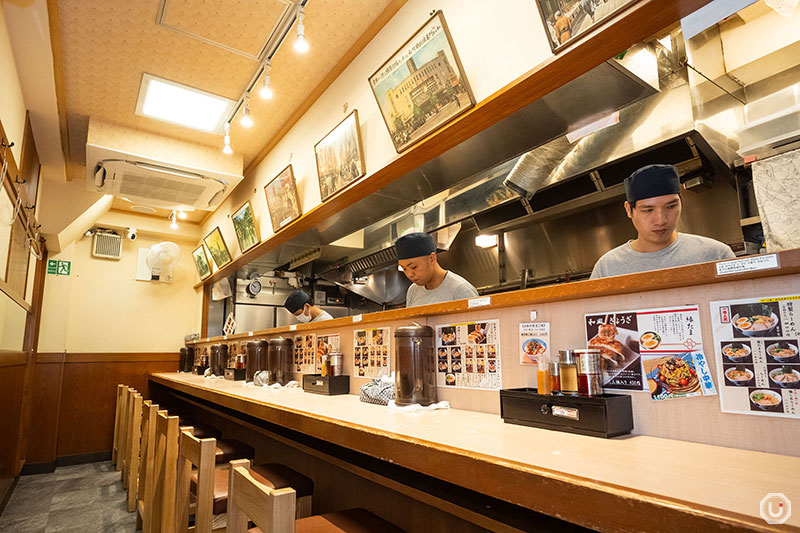
Yoroiya’s interior
Information
| Name | 浅草名代らーめん与ろゐ屋 Asakusa Nadai Ramen Yoroiya |
|---|---|
| Address | 1-36-7 Asakusa, Taito-ku, Tokyo
|
| Access |
Asakusa Station 2-minute walk from Exit 6
Asakusa Station 5-minute walk from Exit A1
|
| Phone number | 03-3845-4618 |
| Reservations | Not accepted |
| Payment |
|
| Service charge/Table charge | None |
| Hours | 11:00-21:00(last order 20:30) |
| Closed | No fixed holidays Unscheduled holidays |
| Seating | 32 seats 9 counter seats, 23 table seats |
| Smoking | All seats are non-smoking |
| Official website | https://yoroiya.jp/ |
| Other information |
|
※Menu contents, prices, store information, etc. are current as of September 2024.
